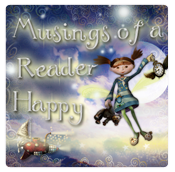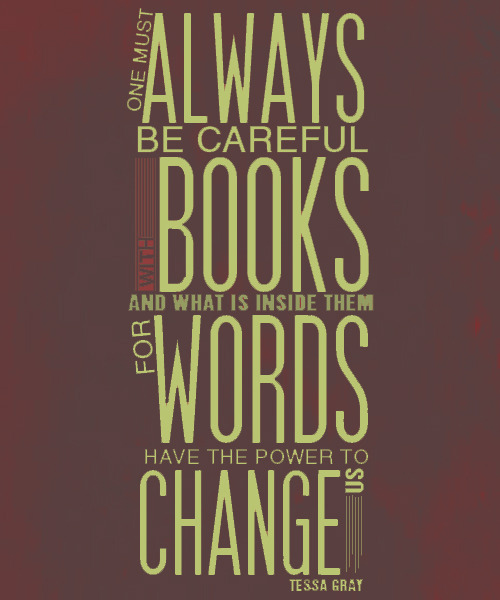 To kick off Psychtember, I'm pleased to welcome Len from Musings of a Reader Happy to the blog for a guest post on bibliotherapy!
To kick off Psychtember, I'm pleased to welcome Len from Musings of a Reader Happy to the blog for a guest post on bibliotherapy!Bibliotherapy seems to be a straightforward term. Derived from the greek word, Biblion (book) and therapy (treatment). Though in reality its definition can vary from the simplest to a broader range.
 David Russell and Caroline Shrodes (1950, from Allen et al., 2012) have deduced from their review of literature that bibliotherapy, “as a process of dynamic interaction between the reader and literature – interaction that may be utilized for personality assessment or for adjustment, preparation, healing and growth.” The Greeks even posted above their library doors the words, "the medicine chest of the soul."
David Russell and Caroline Shrodes (1950, from Allen et al., 2012) have deduced from their review of literature that bibliotherapy, “as a process of dynamic interaction between the reader and literature – interaction that may be utilized for personality assessment or for adjustment, preparation, healing and growth.” The Greeks even posted above their library doors the words, "the medicine chest of the soul."Though literature and other researches on this area suggest therapeutic attributes of reading books, it does not necessarily follow that it meant to be a form of psychotherapy, or for teachers and librarians as therapists. Librarians themselves agree, that handing out books to those who are already under forms of clinical stress might even prove to be detrimental to their healing. They cautiously approach this matter.
We have heard a lot of stories and comments from fellow readers of how books (or reading) have changed their lives.
I even remember this event called #YASaves, where some fellow bloggers speak out in reaction to an article lamenting on how dark the trend of YA books have become. It stirred my own experience with books, because I myself was saved by books. Perhaps the word, “saved” is a bit dramatic for some but it is true, and just one of the things a book can do to a reader, depending on his/her experience of it.“Life-transforming ideas have always come to me through books.” — Bell Hooks
“There are only two worlds - your world, which is the real world, and other worlds, the fantasy. Worlds like this are worlds of the human imagination: their reality, or lack of reality, is not important. What is important is that they are there. these worlds provide an alternative. Provide an escape. Provide a threat. Provide a dream, and power; provide refuge, and pain. They give your world meaning. They do not exist; and thus they are all that matters.” — Neil Gaiman, The Books of Magic
Jami Jones reiterates that, “anytime a book is read by someone who needs its message to solve a problem or reflect on a challenge, bibliotherapy has occurred.” Ask any reader and they always have their own fair share of stories of how books helped them.
“We live and breathe words. It was books that kept me from taking my own life after I thought I could never love anyone, never be loved by anyone again. It was books that made me feel that perhaps I was not completely alone. They could be honest with me, and I with them.” — Cassandra Clare
Now, whether reading books is in itself an act or a therapy, simple or complex, how or why, I think it’s best to say that books are indeed powerful. That they have the power to change us.
 |
| (x) |
sources:
Allen, James R., Allen, Sandra F., Latrobe, Kathy H., Brand, Michael, Pfefferbaum, Betty, Elledge, Brenda, Burton, Tracey, and Guffey, Matthew. (2012). The Power of Story: The Role of Bibliotherapy for the Library. Children and Libraries.
Jones, Jami L. (2006). A Closer Look at Bibliotherapy. Young Adult Library Services: Feature.
[Len Delgado (maidenveil) graduated with a Bachelor of Science degree in Psychology, and MA in Counseling Psychology. She's currently focused with research and recent studies on social, young adolescent, gender, and personality, and exploration on Forensic Psychology.]
Thanks very much, Len, for sharing your thoughts on how books can impact us! Readers, do any of you have experience with bibliotherapy? What books have changed your lives in big ways?



What a perfect first post :) I think everyone has read a book that had a particular impact on them, I definitely have. Those are some of my favourite reading moments, and another reason why I love to read! Sometimes all I need is some time with a book.
ReplyDelete